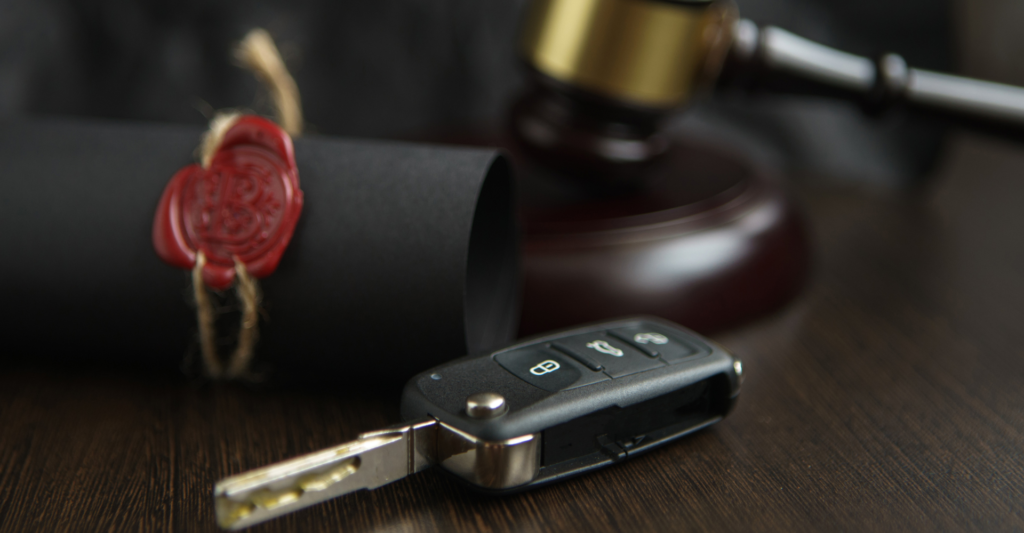
How to File a Lemon Law Claim for a Defective Truck in California
Buying a truck should give you confidence and reliability—not repeated breakdowns and endless repair visits. If your truck has ongoing mechanical problems and you’re wondering how to file a lemon law claim, California’s Lemon Law may give you the legal right to a replacement or refund. Many truck owners don’t realize that California lemon law protections apply to trucks just as they do to cars. When a manufacturer fails to fix a serious defect after multiple repair attempts, you don’t have to keep paying for a vehicle that doesn’t work. Understanding how to file a lemon law claim in California is the first step toward protecting your investment and your peace of mind. This guide explains the process clearly, outlines your legal rights, and shows when working with a California lemon law attorney for truck defects can make a difference. How I Took on a Defective Truck—And Won with the Lemon Law Let me tell you something—nothing prepares you for the frustration of buying a truck you love, only to discover it has serious mechanical issues. That was my reality. I purchased a reliable-looking truck with solid mileage and warranty coverage, fully expecting dependable performance. Instead, I found myself back at the dealership again and again, learning firsthand how challenging the California lemon law for trucks process can be without the right guidance. Each time, I was told the issue was “fixed.” Each time, it wasn’t. After months of repeated repairs and growing stress, I realized I needed to understand how to file a lemon law claim properly. With help from a knowledgeable California lemon law firm, I used the California truck replacement law to reclaim control of my purchase—and my peace of mind. When My Dream Truck Became a Problem The truck looked perfect on the lot. It had low miles, great service history, and all the features I wanted for work and weekend adventures. But less than three months into owning it, things started to fall apart. At first, it was minor. Warning lights came on and disappeared. Then came engine hesitation. Eventually, the transmission started acting up on the highway—dangerous stuff. After four visits to the dealership, I still had no solution. That’s when I realized: I wasn’t just dealing with an unlucky repair run. I had a lemon on my hands. Starting to Ask the Right Questions Like most people, I’d heard the term “lemon law” before but didn’t really know how it worked. I thought it only applied to cars with obvious issues or major breakdowns. But after reading up online and comparing my situation, I discovered that there are protections for consumers who buy trucks with serious or repeated issues—especially under the California truck replacement law. It was a wake-up call. I didn’t have to accept these endless repair visits as “normal.” Recognizing the Pattern Here’s what my truck had experienced in just under six months: If this sounds like your situation, listen carefully: this could qualify under California’s lemon law protections for trucks. Especially if the issues affect safety, use, or value—which mine clearly did. Taking Action (and Why I’m Glad I Did) After enough frustration, I decided to consult a lemon law attorney for trucks. I found someone experienced specifically with truck cases in California. At first, I wasn’t sure if I was “qualified.” But the attorney reassured me: That’s really all I needed. Best of all, most attorneys in this space work on contingency. That means I didn’t pay a thing upfront—my attorney only got paid if we won. How to File a Lemon Law Claim in California Here’s a quick breakdown of how the process worked: 1. Document Everything I gave the attorney all repair orders, purchase contracts, and communication with the dealer. 2. Manufacturer Notification The attorney sent a formal letter giving the manufacturer one final chance to respond or offer a resolution. 3. Negotiation Begins To my surprise, the manufacturer responded quickly. I had strong documentation, and that gave us leverage. 4. Settlement Options Offered I was offered a refund or a replacement vehicle. Because I liked the truck model (when it worked), I chose the replacement—under full warranty. This entire process took a few weeks—not months like I feared. And having truck defect legal help made it far easier and less stressful. What You Need to Know (Before You Give Up) So many truck owners I’ve talked to since have had similar issues, but didn’t know where to turn. Here’s what I learned: Your Truck Qualifies Too Many people think lemon laws only apply to sedans or luxury cars. But they also apply to trucks used for personal or small business purposes. Repeat Repairs Are Key The law isn’t about one bad repair. If you’ve had multiple repair attempts for a recurring issue, that’s a red flag—and could mean eligibility. Time in the Shop Counts If your truck has been in service for 30+ days within the first 18 months or 18,000 miles, you might qualify for relief. It’s Not Your Fault Just because your vehicle is new doesn’t mean it’s flawless. The law exists because manufacturers sometimes get it wrong—and you shouldn’t have to pay the price. What I Gained from the Experience When my claim was resolved, I felt a huge weight lifted. Not only did I get a properly working truck that I could rely on, but I also got peace of mind knowing I hadn’t been taken advantage of. I also gained a deeper understanding of consumer rights—something I wish more people talked about. Buying a truck is a huge investment. You shouldn’t be stuck with a faulty one just because “that’s how it goes.” With the help of a lemon law attorney for trucks, I found a way forward. Would I Do It Again? Absolutely. If you’re reading this and dealing with a truck that keeps going back to the shop, here’s what I’d say: Start collecting your repair records todayTake photos of warning lights or malfunction alertsContact someone experienced in
How to File a Lemon Law Claim for a Defective Truck in California Read More »









